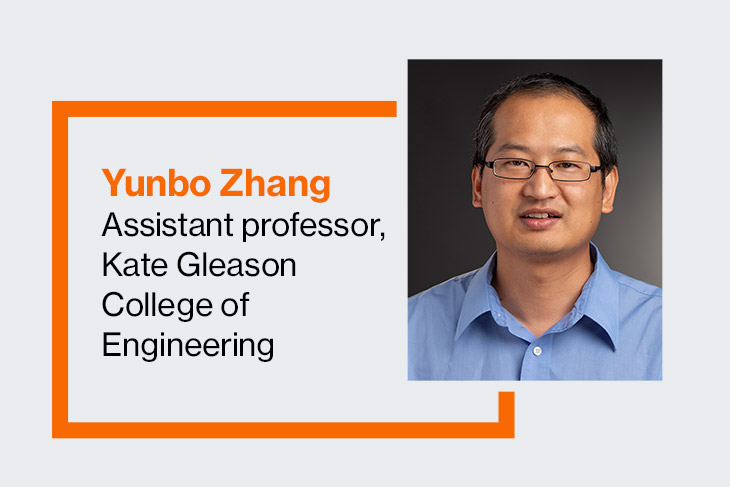Faculty researchers secure another workforce development grant to support growth of machinists in manufacturing
Tacit knowledge and usage skills will be captured by artificial and extended reality technologies
Faculty researchers received a new grant from the National Science Foundation (NSF) to develop a system that improves passage of tacit knowledge from skilled machinists to those coming into the field. The work will also focus on how to best provide this essential knowledge to under-represented populations.
Receiving funding of $149,999 from the NSF’s Future of Work at the Human-Technology Frontier Program, Yunbo Zhang, assistant professor of industrial and systems engineering in RIT’s Kate Gleason College of Engineering, will further work on the design of a program to address shortages in the machining industry. He and the team are building training options to fill gaps expected as older workers retire and take with them skills learned over their respective careers. Using artificial intelligence and extended reality, the team will look to adding very specific tacit knowledge—the more personal, context-specific, and experiential learning that is different from usage and procedural skills.
This past summer, Zhang and Rui Liu, assistant professor of mechanical engineering, received a substantial grant from the NSF’s Advanced Technological Education Program to build the machinist modules. The grant focuses on work with campus, corporate partners, community colleges, and local industries to prepare customizable materials that reinforce skillsets needed to build and produce precision parts. The new Human-Technology Program grant will further connect the resources and research efforts, pushing the research direction toward more in-depth understanding of tacit knowledge in machinists’ skillset training.
Plans also include independent study and modules that update skills needed to address Industry 4.0 topics such as automation and monitoring, sustainable machining, and cybersecurity. Content will also be streamlined to ensure that new machinists have a common core of education to qualify for transfer in to academic degree programs if desired.
Project team members are Zhang; Liu; Esa Rantanen, associate professor of psychology; and Chao Peng, associate professor in the School of Interactive Games and Media, from RIT, and Kylie Peppler, associate professor or information and education (University of California – Irvine).







